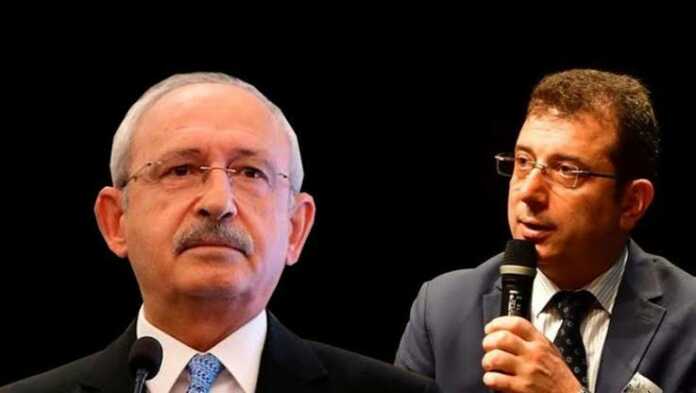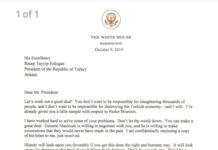
Istanbul is the most important city in Turkey, and not only in regard to history and natural beauties. Almost one fifth of the country’s population live in Istanbul. The significance of Istanbul in Turkish economy is incomparable to any other city.
The phrase used for Istanbul at a time, “paved with gold” may have lost its relevance today, but Istanbul is still the city of arrival for the ambitious and adventurous, or for those who seek a better living standard.
Political significance of Istanbul
The importance of Istanbul in the eyes of politicians is indisputable. People in the know have come to cite this maxim recently: “Who loses Istanbul loses Turkey.” It is open to discussion to what extent this maxim holds the truth. But, as the political story of Tayyip Erdoğan and AKP (the ruling party, Justice and Development Party -TN) points out too, the saying “Who wins Istanbul wins Turkey” is true.
Tayyip Erdoğan won the municipal election in Istanbul, and this paved the way for him to presidency.
AK Parti’s insistence on the annulment of the election for the Istanbul metropolitan municipality on 31 March and repetition of the election is not surprising at all.
For the same reason, CHP’s effort to hold the metropolitan municipality in its hands is perfectly understandable, too.
The initial part of the maxim that reads “Who loses Istanbul. . .”clearly implies an outcome that AKP wants to avoid, while supporters of CHP expect the other maxim, “Who wins Istanbul wins Turkey”, testified by Tayyip Erdoğan’s political adventure, to be verified for their party, too.
CHP sees being the winner in Istanbul as the beginning of the road leading to power. Therefore, they are working hard now for re-run as they did before the 31 March election.
The result?
We all know: CHP could manage to win the election on 31 March thanks to its candidate; if it wins on 23 June too, what will make this possible is the identity of its candidate.
Again we all know that Ekrem Imamoğlu is not a typical CHP politician. If this is not completely true, this is the impression he gives to people who try to follow politics closely. . .
Even if CHP wins the Istanbul election and begins to hope to come to power in Turkey as the ruling party, such an achievement, under the present circumstances, is very difficult, even almost impossible.
Why?
I wrote yesterday: CHP had won the metropolitan municipality election in Istanbul in 1973 outscoring its conservative rival, Adalet Partisi (the Justice Party). In that election. Ahmet İsvan was elected as the mayor with a high percentage of 63.6.
While glancing through Isvan’s book titled “Başkent Gölgesinde İstanbul” (“Istanbul under the Shadow of the Capital”) where he tells his political adventure from the beginning, I have encountered some findings of him that may be an answer to the question above.
CHP has a history, and it boasts of its history as the ‘founding party of the Republic’. But what CHP boasts about is its weak spot, too. What were experienced in old days have a strong place in the collective memory of the people, and not all memories of CHP as the founding party are positive. . .
Raking up the past, opponents of CHP attack it with ‘retroactive criticisms’, and this often causes the renewal of old memories, thus, a negative impact on CHP’s votes.
Let us read together the following paragraph from Ahmet İsvan’s book (p. 22-23):
“In every village we went, there were people from Demokrat Party (the rival conservative party -TN); they were often friendly in attitude, but rather harsh in words by calling us account for the gendarme beatings and the 6-Turkish Lira road tax. Yes, we were the people who, during the Single-Party Rule that came to an end some time ago, collected an annual 6-Lira road tax -please pay attention here, not from all citizens but only from villagers, imposed a levy on their properties if they failed to pay the tax by expropriating their household goods, carpets, rugs. Those days, the daily wage was 25 kuruş (cent -TN). It was easy to understand while listening to such complaints how proper and effective the outcry of “Enough! Power to the People!” (the popular slogan of the opposition party -TN). The only defensive argument we had against such criticisms was reminding these people that we had abolished the tithe (a compulsory tax paid to government) and high military expenditure. Clearly, our argument was very weak. The very impact of the 6-Lira road tax on the perception of CHP in the countryside was the most challenging barrier in our political campaigns in villages and towns I participated in during a 10-year period. We kept trying to minimize the significance of the past experiences in a defensive manner. I still wonder why we did not make our way out in those years by saying: “Yes, mistakes were committed, but we have taken lessons from our mistakes.”
The road tax. . . Only this alone was enough for people in 1950s to distance themselves from CHP.
And, of course, gendarme beatings too. . .
CHP faces a heavy task in the absence of self-criticism
CHP’s history contains more serious cases that require criticism, and those cases make it difficult to vote for CHP for people with certain political tendencies. These people are not limited to AKP supporters. Even the people who have read books of Atilla İlhan, a ‘Left-Kemalist’ poet, novelist, commentator and journalist awarded with a ‘CHP prize’ would find it hard to vote for CHP.
Ahmet İsvan, who had traveled from one village to another in 1950s during election campaign in order to convince voters of the conservative ruling party to vote for CHP long before he won the municipality election in Istanbul in 1973, regretted that they could not bring themselves to publicly say: “Yes, mistakes were committed, but we have taken lessons from our mistakes.” The requirement of such a courageous stand is still valid for CHP today.
Today too, supporters of CHP are incapable of saying, “You are right in your criticism, but all that you mention belong to the past; we made mistakes, and have taken lessons from our mistakes” when they are challenged with criticisms pertaining to its past…
When Bülent Ecevit (former CHP leader -TN) appeared before the masses with a new discourse that meant some sort of ‘self-criticism’ (in 1977), CHP was able to attract an impressive 41.4 percentage of votes.
We will see if Ekrem İmamoğlu would win the election in Istanbul again. Even if he wins, I am quite doubtful that the maxim of “Who wins Istanbul wins Turkey” would be valid for CHP. AKP unnecessarily worries about CHP.
It seems to me that CHP’s hope for coming to power is destined to disillusionment unless it earnestly engages in a stronger self-criticism.
ΩΩΩΩ
[This is the translation of the article published on May 13, 2019 by Bernar Kutluğ]










